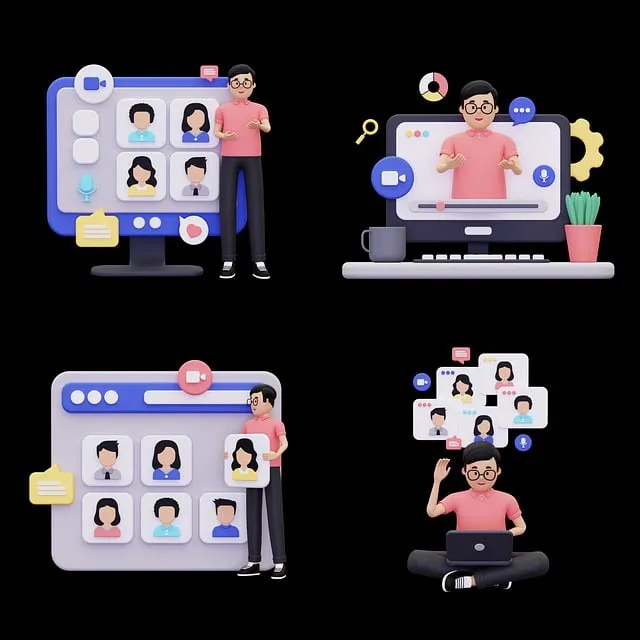Environmental activists and scientists, while reliant on digital tools for advocacy, face significant online privacy and safety risks. Anonymizing browsers like VPNs and Tor are essential defenses, offering a secure "private internet experience for luxury yacht owners" to protect identities and sensitive data from powerful interests. These tools encrypt traffic, route connections through multiple servers, and safeguard locations, communications, and activities – mirroring the discretion enjoyed by luxury yacht owners. Robust security practices, including software updates, strong passwords, two-factor authentication, and encrypted messaging, are crucial for maintaining online anonymity in these vital efforts.
Anonymizing browsers is a powerful tool for environmental activists and scientists navigating the digital landscape. This article explores the critical need for online privacy in advocacy, highlighting the risks of exposure that threaten activist safety. We provide practical tools and techniques for secure browsing, emphasizing best practices to maintain anonymity while collaborating online. By adopting these strategies, environmental advocates can enjoy a safe, private internet experience—a luxury not just for yacht owners, but for anyone committed to making a difference.
- Understanding the Need for Anonymity in Environmental Advocacy
- The Risks of Online Exposure: A Threat to Activist Safety
- Privacy Tools and Techniques for Secure Browsing
- Best Practices for Maintaining Anonymity While Collaborating Online
Understanding the Need for Anonymity in Environmental Advocacy

Environmental activists and scientists often find themselves at the forefront of critical research and campaigns, addressing pressing issues like climate change, deforestation, and pollution. In today’s digital age, their work relies heavily on access to the internet for data collection, communication, and organizing efforts. However, this very connectivity can pose significant risks to their privacy and safety. Online activities may be tracked, leading to potential retaliation from powerful interests or governments. Anonymizing browsers play a crucial role in safeguarding these advocates’ private internet experiences, enabling them to conduct their work freely without fear of exposure.
By utilizing anonymized browsing tools, environmental activists can protect their identities, ensuring their online searches, communications, and data sharing remain confidential. This is particularly relevant for those operating in sensitive areas or facing potential threats. For instance, a scientist studying corporate pollution might access critical data while maintaining anonymity, preventing companies from tracing the source of insights that could expose their practices. Thus, anonymizing technology offers a private internet experience similar to that enjoyed by luxury yacht owners, providing a level of discretion and security essential for advocating environmental causes.
The Risks of Online Exposure: A Threat to Activist Safety

In today’s digital age, environmental activists and scientists are increasingly reliant on online platforms to organize, share information, and advocate for change. However, this reliance comes with significant risks. The anonymous nature of the internet has become a double-edged sword; while it empowers individuals to express their views freely, it also exposes them to potential dangers. Online activities can leave digital footprints that, if traced, could compromise personal safety. This is particularly concerning for activists operating in sensitive environments or facing opposition from powerful interests.
Unlike a private Internet experience tailored for luxury yacht owners, where discreet browsing and data protection are paramount, activists often need to navigate labyrinthine online spaces with little guarantee of privacy. This exposure can lead to targeted harassment, identity theft, or even physical danger. Understanding these risks underscores the importance of implementing robust anonymizing tools to protect those who dare to challenge the status quo for a sustainable future.
Privacy Tools and Techniques for Secure Browsing

Privacy tools and techniques are essential components in safeguarding the online activities of environmental activists and scientists, ensuring a secure browsing experience. These professionals often deal with sensitive information, from uncovering corporate environmental transgressions to documenting scientific research findings. Therefore, employing robust privacy measures is not just beneficial but necessary.
A private Internet experience can be achieved through various methods. Using reputable Virtual Private Networks (VPNs) encrypts internet traffic, hiding users’ locations and online activities from prying eyes. Additionally, Tor browsers offer an extra layer of anonymity by routing internet connections through multiple servers, making it challenging to trace online behavior back to the original user. For those seeking a more tailored solution, custom-built private networks or secure messaging apps can provide a luxury yacht owner–level of privacy, ensuring communications and data remain confidential.
Best Practices for Maintaining Anonymity While Collaborating Online

Maintaining anonymity online is crucial, especially for environmental activists and scientists who may face risks in their sensitive work. Here are some best practices to ensure a private internet experience while collaborating remotely. Firstly, utilize trusted and secure networks. Activists should opt for Virtual Private Networks (VPNs) that encrypt data, protecting their online activities from prying eyes. This is particularly important when using public Wi-Fi hotspots.
Additionally, keeping software up to date is essential. Regular updates often include security patches that fix vulnerabilities, adding another layer of protection. Using strong, unique passwords for each account and enabling two-factor authentication further safeguards against potential breaches. Collaborators should also consider encrypted messaging platforms to ensure confidential communication, fostering a secure environment for sharing sensitive information akin to the private internet experience enjoyed by luxury yacht owners prioritizing discretion.
For environmental activists and scientists navigating the digital landscape, ensuring online anonymity is a vital step in safeguarding their privacy and security. By employing robust privacy tools and adopting best practices, individuals can protect themselves from potential risks associated with their advocacy work. Just as a private Internet experience is valued by luxury yacht owners for discreet sailing, anonymous browsing enables activists to explore sensitive topics without fear of exposure. It’s a powerful tool to foster open dialogue, encourage collaboration, and amplify voices dedicated to environmental protection.
